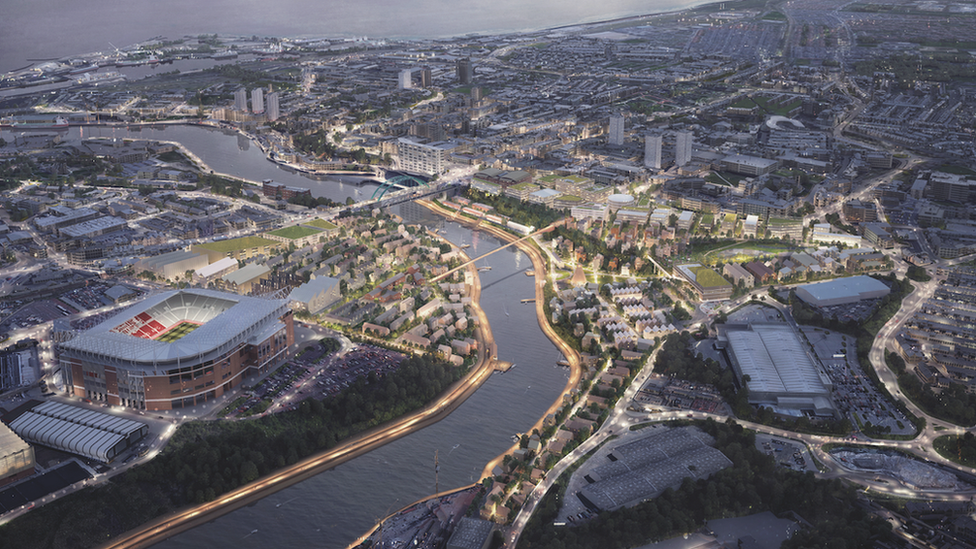Election 2022: The battle for Labour's Sunderland stronghold
- Published
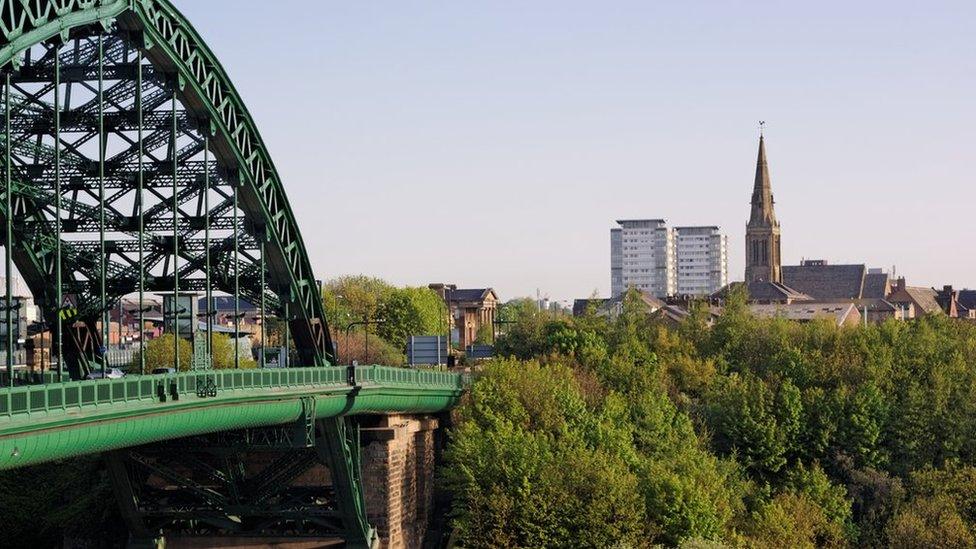
Labour has dominated in Sunderland for almost 50 years
For decades Labour has dominated in Sunderland. But if the party loses just six seats in local elections on 5 May, it will lose overall control for the first time.
Amanda Martin's deli sells all sorts of delicious things from a newly-renovated Victorian building in Sunderland city centre, inside a local landmark known as Mackie's Corner.
Amanda's hoping new office developments in the city - and other recent investments - will bring more people into the area.
"You can see a lot more businesses popping up, there is a lot more people coming back to visit Sunderland as well," she says.
"It will encourage more small businesses to open up - it will be more of a café culture going on as well, which will be great."
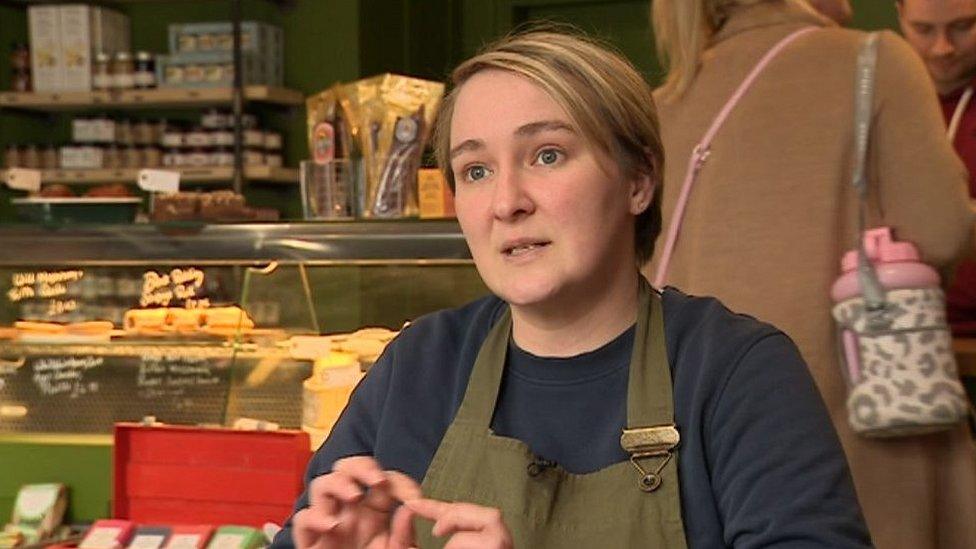
Amanda Martin hopes recent investments in the city will bring more people into the area
Just next to the River Wear, the site of the former Vaux Brewery - empty for more than 20 years - is being transformed.
New offices are being built and the council has already moved into a swish new headquarters of its own on the site, a move that's proved controversial because of the £42m price tag.
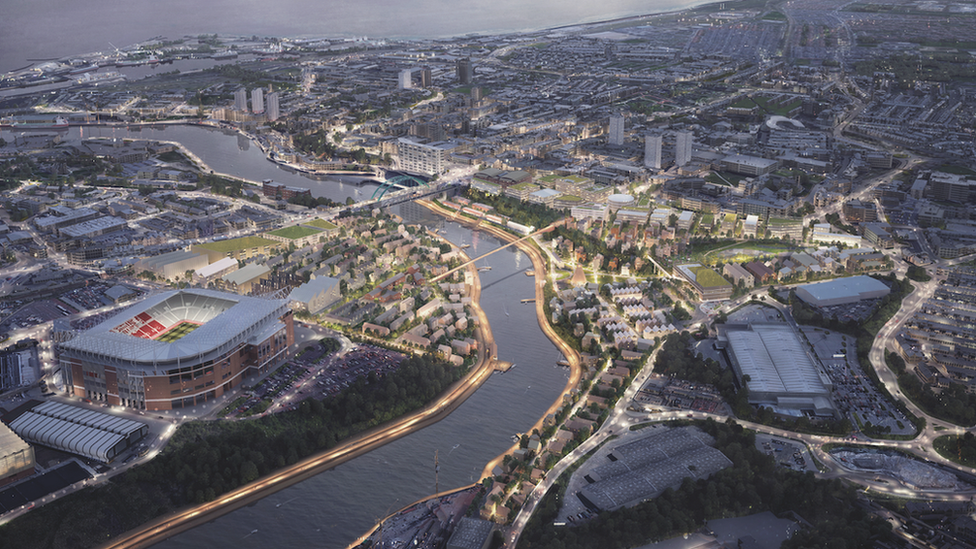
The 26-acre site of the old brewery has been vacant since it closed in 1999
Graeme Miller, leader of the ruling Labour group on the council, is unapologetic. He says the old city hall was in a state of disrepair, and maintaining it was a huge drain on resources.
The new building, he says, represents the ambition of the city after many years of criticism that it was stagnating and in decline.
"We've listened over the last four years to residents, we've talked to them in great detail, we've asked them what they wanted and we're now delivering it," he says.
"And people can see that in the change that's happening, not just in the city centre, but down on the seafront and in Washington and the coalfield [areas].
"When you talk to people and start to deliver what they've asked for, I think they then consider you as a party that they can vote for."
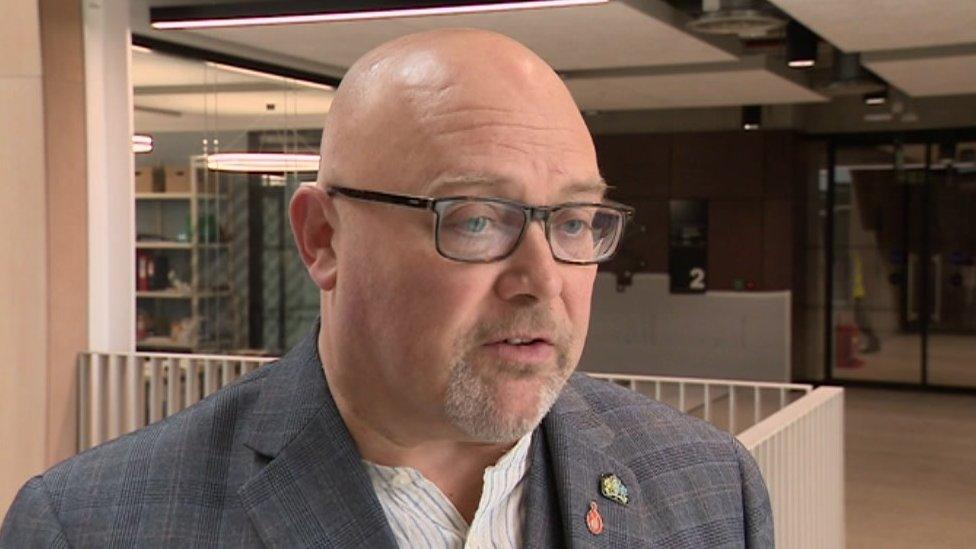
Labour leader Graeme Miller said the council was "regenerating and transforming the city"
Political rivals aren't convinced that under Labour's leadership things have really moved forward, and see the election as a chance for a change.
This year 25 of the city's 75 seats are up for election, though one contest in a ward has been suspended due to the death of the candidate and will be run at a later date.
In elections held in 2019 and 2021, Labour lost a total of 23 seats. If Labour loses six seats this time it will lose its majority, though remain the largest party, for the first time since the council was created in 1974.
The council's Conservative group currently has 19 councillors, and the group's leader Antony Mullen thinks Labour could be losing its grip on Sunderland.
"This is a once-in-a-generation opportunity to have a council in Sunderland which is not dominated and controlled by Labour," he says.
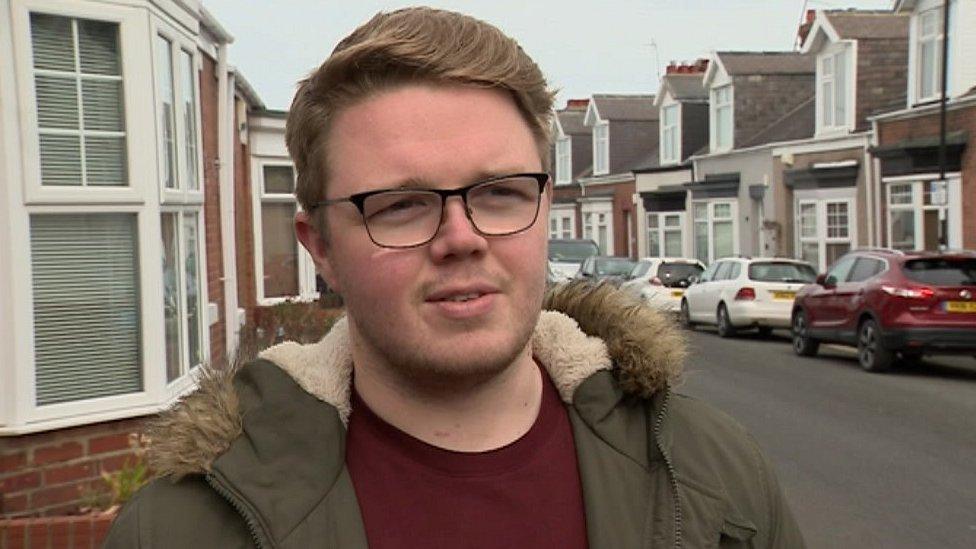
Conservative councillor Antony Mullen said Thursday's vote was about Graeme Miller's leadership, not Boris Johnson's
But "Partygate" looms over this election for the Conservatives.
Never a fan of the prime minister, Mr Mullen has previously called on Boris Johnson to resign over the issue, though he has since modified his call saying Mr Johnson should quit after the Ukraine crisis is resolved, whenever that might be.
But how can Mr Mullen knock on doors and ask people to vote Conservative when he doesn't think his own prime minister should remain in office?
"This isn't a general election, this isn't about Boris Johnson's leadership, this is about Graeme Miller's leadership. Graeme Miller leads the council, this is a local government election," he tells me.
Labour and the Conservatives aren't involved in a two-horse race though. One notable aspect of politics in Sunderland in recent years has been the rise of the Liberal Democrats in a city so strongly associated with Brexit.
At the start of 2016 the Lib Dems had no seats on the council - they now have 12 and are hoping to win more this time.
The party has been critical of the move to the new city hall and Paul Edgeworth from the party tells me the council "is deeply unpopular".
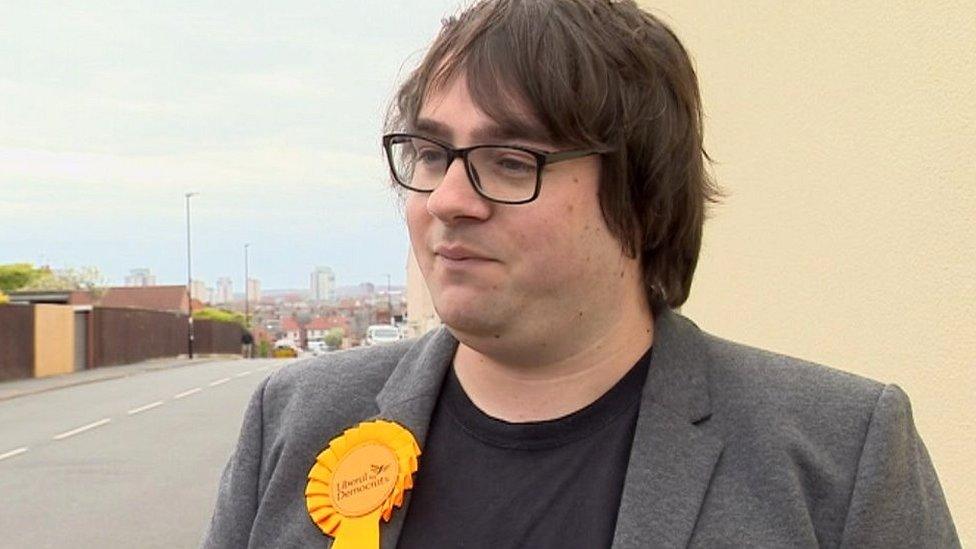
Paul Edgeworth said the city council was currently "deeply unpopular"
"They're wasting millions renting new civic centre offices for themselves and they can't get the basics right, they can't fix the streets they can't clean the roads and people are still angry about that," he says.
"For years Labour have run the council and have had a weak and insipid Conservative opposition who haven't really challenged them so the Liberal Democrats have been the big winners in recent years."
Also in the mix in Sunderland is the Green Party. In 2019 it won its first seat on the council, though that councillor subsequently stepped down.
Rachel Featherstone from the party argues even having a few seats would bring change on the council if Labour lost its majority.
"People are tired of the same old two parties, they're tired of their petty bickering, and they can see that Greens are bringing fresh ideas, enthusiasm, and real visibility in their local communities," she says.
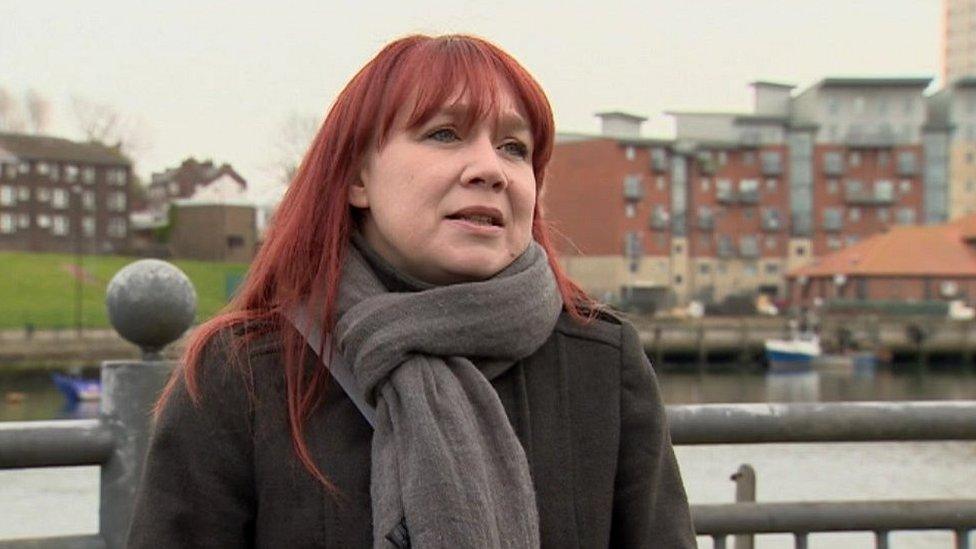
The Green Party's Rachel Featherstone says people are "tired of the same old two parties"
The decades-long domination of Labour is being challenged in Sunderland. Losing control of the council would be a big deal, locally and nationally, a blow not just for Mr Miller, but Keir Starmer too.
Labour believes though the tide has turned back in its favour, while its political rivals sense an opportunity that may not come around again soon.

POSTCODE SEARCH: Is there an election in my area?
WHAT'S HAPPENING WHERE: Really simple guide
ENGLAND: Simple guide

Follow BBC North East & Cumbria on Twitter, external, Facebook, external and Instagram, external. Send your story ideas to northeastandcumbria@bbc.co.uk, external.
Related topics
- Published21 November 2019
